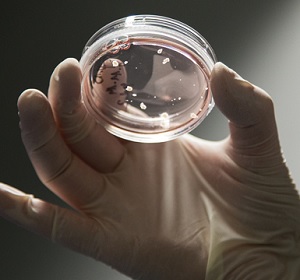Could Miniature “Brains” Aid Autism Research?

Researchers at the Yale School of Medicine have used human skin cells to develop miniature “brains” that could help gather insights into the development of autism.
Autism spectrum disorder is a neurodevelopmental condition characterized by impairment of social interactions, verbal and nonverbal communication, and restricted and repetitive behaviors. More than 80 percent of autism cases still have no clear genetic cause (this is called idiopathic autism).
The Yale researchers have isolated skin cells from idiopathic autistic individuals and their healthy fathers (as controls) and converted these cells into induced pluripotent stem cells. In a second step, the induced pluripotent stem cells were further differentiated into brain cellular organoids. These miniature brains were shown to mimic the early phases of human brain development in vitro, revealing the role of genes that control neuronal development and which appear to be altered in people affected by autism. These observed genetic impairments were correlated with an overproduction of GABAergic neurons known to inhibit neural activity.
References
- Mariani J, Coppola G, Zhang P, Abyzov A, et al. FOXG1-dependent dysregulation of GABA/glutamate neuron differentiation in autism spectrum disorders. Cell. 2015;162:375-390.








